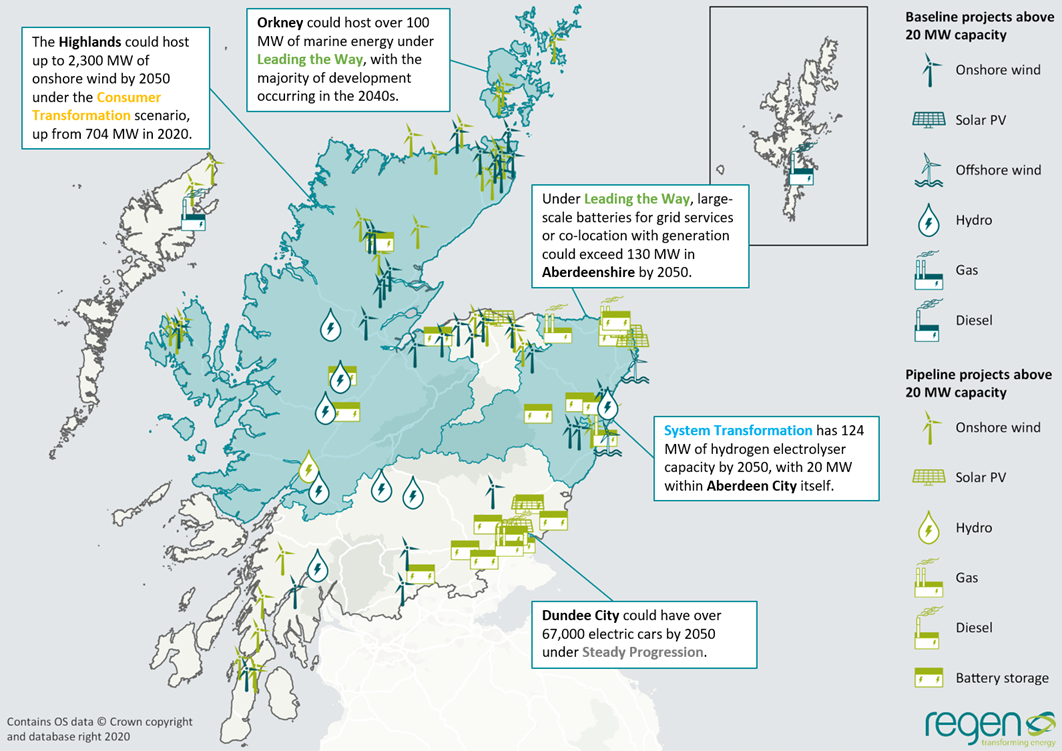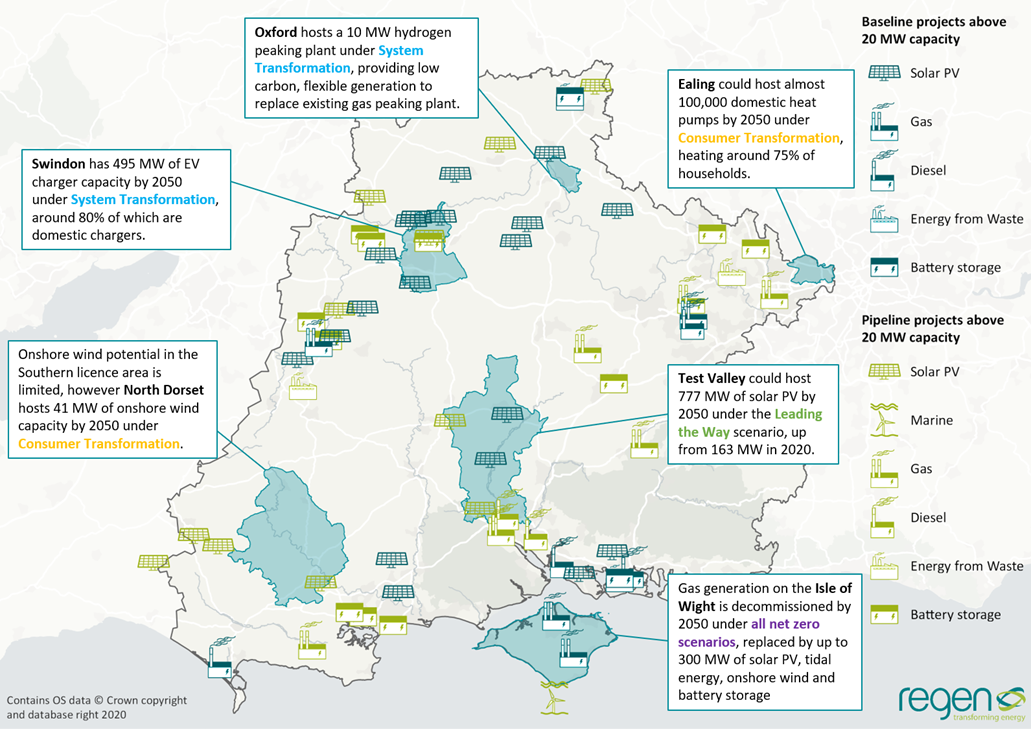Project duration: July 2020 – December 2020
Project lead: Ray Arrell, Head of Technical Development
Regen worked alongside Scottish and Southern Electricity Networks (SSEN) to undertake the 2020 edition of their Distribution Future Energy Scenarios (DFES) analysis for both the North of Scotland (SHEPD) and Southern England (SEPD) distribution network licence areas. As part of this project, Regen also refreshed the more granular Low Carbon Technology (LCT) study that Regen developed with SSEN towards the end of 2019, producing scenario projections for EVs, electricity fuelled heating technologies and domestic rooftop solar PV capacity to secondary substation and feeder level – the equivalent of street-level forecasts.
The DFES process provides SSEN with detailed scenario projections for the increase (or reduction) in the connected capacity of energy generation, storage, and disruptive demand technologies connecting to SSEN’s distribution network out to 2050. The analysis also includes projections for new housing and the increase in commercial and industrial developments.
This work forms part of SSEN’s network planning and investment appraisal process, with Regen’s DFES projection datasets and accompanying written reports allowing network planners and forecasting teams to model and analyse different future load scenarios on SSEN’s network. The DFES has also supported SSEN to develop an evidence base and input into SSEN’s business plan submission for the upcoming RIIO-ED2 price control period, with the SSEN team engaging local councils with scenario data for their specific local authority area.
Engagement with regional and local stakeholders is a core feature of DFES analysis. Regen teamed up with SSEN and the Energy Systems Catapult to deliver a series of interactive webinars across August and September, looking at the local area energy plans and future energy scenarios in both licence areas. A summary of these events and the Mentimeter slides (including results of some online polling conducted on the day) are available on our website, see: North of Scotland webinar (25 Aug) and Southern England webinars (3 & 8 Sep). Regen and SSEN also held a workshop with representatives from Scottish Government in November, seeking to reflect the energy and decarbonisation policy ambitions for North Scotland (including the recently published Climate Change Plan Update) in the North of Scotland licence area analysis.
The project also initiated a data and information exchange with all of the local authorities that sit within each of SSEN’s licence areas. This process enabled Regen and SSEN to understand the location and trajectories for the development of new housing and commercial developments, as well understanding the impacts of local energy strategies, initiatives, decarbonisation targets and climate change declarations, at a local level.
For both licence areas, the results showed a significant evolution of the electricity generation capacity connecting and operating on the distribution network out to 2050. The analysis also highlighted a significant increase in the capacity of commercial and domestic battery storage, as well as some 5 million electric vehicles and 2.5 million heat pumps connecting by 2050 in some scenarios.


The analysis for the DFES and LCT completed in December 2020 and was launched in mid January 2021, see our joint press release with SSEN here.
The two licence area reports are available to view and download from our publications page here.

If you are interested in finding out more about this project with SSEN or our wider work in future energy scenarios, please contact Ray Arrell.










